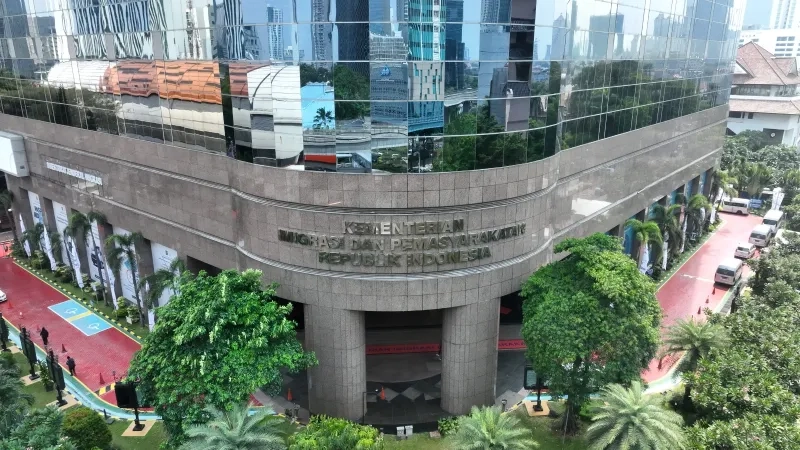The Indonesian Directorate General of Immigration has announced a major overhaul of its visa classification system, reducing the number of visa indexes from 133 to 110. The reform is aimed at improving immigration services and aligning Indonesia’s visa policies with global mobility trends.
One of the key highlights is the introduction of a special visa index for foreign investors in the future capital city, Ibu Kota Nusantara (IKN). Investors who qualify for this visa are allowed to invest and participate in strategic development in IKN.
“We are introducing E28F for foreign investors planning to invest in IKN project. This policy supports Indonesia’s investment climate and provides a clear framework for international stakeholders.” said Acting Director General of Immigration Yuldi Yusman Friday, June 13, 2025, as quoted by Liputan6.
Another visa, E28G, has also been created for foreign nationals assigned as representatives of parent companies operating in Indonesia. This streamlines the process for multinational companies expanding their presence in the country.
Visa Simplification for Enhanced Service
The simplification policy is regulated under the Ministerial Decree No. M.IP-08.GR.01.01/2025 and includes several notable changes. Most significantly, the number of work visa types has been reduced from 31 to just six. For example, all expert work visas sponsored by companies, previously classified under 20 separate indexes (E23B–E23W), are now merged into a single index: E23.
Two new indexes, E23U and E23V, are introduced to accommodate foreign professionals working under the sponsorship of non-corporate entities such as NGOs or academic institutions.
“This policy significantly simplifies the work visa system and offers greater flexibility to applicants from non-corporate organizations,” said Yuldi on Sunday, June 15, 2025, as reported by Detik.
New Cultural Visa and Updated VoA
In addition to investment-focused visas, the Directorate has also launched C7C, a new visa category dedicated to foreign nationals participating in arts, cultural activities, and non-music skills. The visa covers performances like magic shows, culinary demos, and fan meet-and-greets.
“The C7C visa allows foreigners to showcase their talents in Indonesia. This includes professional chefs appearing on television, or magicians and entertainers performing for Indonesian audiences,” Yuldi explained.
For foreign nationals from visa-free countries, Indonesia now uses the A1 index for tourism, business, and short-term medical visits (less than 30 days). Meanwhile, travelers eligible for Visa on Arrival (VoA) will use the B1 index, valid for 30 days and extendable once.
Indonesian Passport Now Offers Visa-Free Access to 45 Countries
While Indonesia opens its doors to the world, its citizens also enjoy expanding global access. Indonesian passport holders can now travel visa-free to 45 countries, including Japan, Vietnam, Turkey, Hong Kong, Macau, Brazil, and Morocco.
According to the Ministry of Law and Human Rights, as cited by Guide Consultants, some of these destinations allow entry for tourism, business, or short-term stays without prior visa arrangements. This offers Indonesian travelers more freedom for personal and professional mobility.
Additionally, China has announced a 240-hour (10-day) visa-free transit for Indonesian nationals passing through major Chinese cities on their way to a third destination. This policy is expected to enhance international connectivity and ease travel through Asia’s major hubs.
These improvements reflect the government’s ongoing efforts to modernize immigration and travel policies to support both economic growth and global integration.
For the full list of revised visa types and indexes, the public is encouraged to visit the official immigration website at www.imigrasi.go.id.
Source: Liputan6, Detik, LombokPost
Special Photo Credit: imigrasi.go.id


